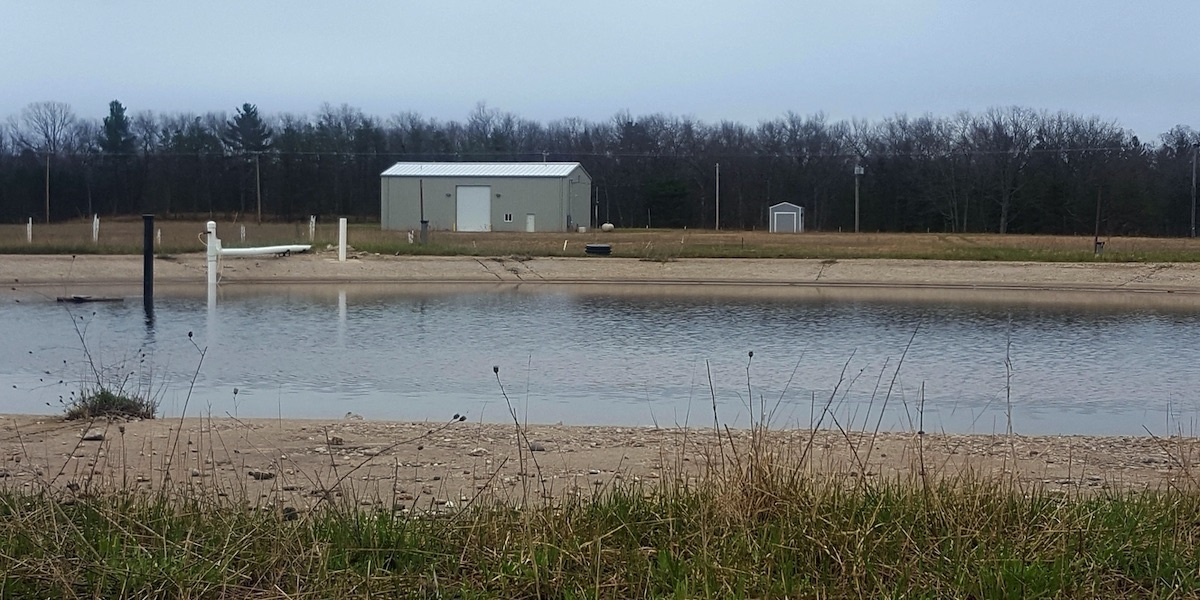
Air Force Refuses to Clean PFAS Contamination at Former Michigan Base

Fire Training Area #2 at the former Wurtsmith Air Force Base, Michigan. Breanne Humphreys/ Air Force
The U.S. Air Force is refusing to comply with the state of Michigan’s request to expand cleanup of PFAS contamination near the former Wurtsmith Air Force Base in Oscoda, MLive reported.
PFAS, or poly- and perfluoroalkyl substances, are a group of controversial chemicals that includes PFOA, PFOS and GenX. The substances can be found in a vast array of products, from non-stick cookware to firefighting foams, and may have found its way in the drinking water for up to 110 million Americans nationwide.
In Michigan, there are 40 known sites, including active and former military bases, that have confirmed PFOA and PFOS in groundwater. Michigan’s Department of Environmental Quality (MDEQ) became aware of PFAS contamination at the former Wurtsmith Air Force Base way back in March 2010 after sampling confirmed its presence at a fire training area on the base.
So in October as MLive’s Garret Ellison reported, the MDEQ issued a violation notice to the U.S. Air Force for “far exceeding the 12 nanograms per liter PFOS water quality standard” in areas near Clark’s Marsh, which borders the former Wurtsmith Air Force Base where personnel had used PFAS-containing firefighting foam for fire training exercises.
The Air Force’s response? They wrote back in a Dec. 7, 2018 letter saying the state that doesn’t have the authority to regulate federal facilities.
A senior Air Force official said MDEQ “lacks the jurisdictional authority” to force compliance.
The federal government “has not waived sovereign immunity with regard to the state regulation on which the (violation notice) is premised,” the official continued, adding that the Air Force “is hereby informing you that it will not be taking any new remedial actions at this time.”
Basically, as Ellison tweeted, “The Air Force is telling Michigan to take its 12-ppt regulatory limit on PFAS in surface water and shove it.”
The Air Force is telling Michigan to take its 12-ppt regulatory limit on PFAS in surface water and shove it. https://t.co/nzzSilOFjY
— Garret M. Ellison (@garretellison) January 29, 2019
This exchange is the latest in a years-long saga between Michigan and the Air Force ever since PFAS was detected at Wurtsmith in 2010.
The chemicals have since spread to ground and surface water, Clark’s Marsh, the AuSable River and is now threatening Lake Huron, according to The Detroit News.
Although the Air Force has installed filtration devices and monitoring wells around the area, it has been slow to take full responsibility of the contamination, the publication said.
PFAS exposure has been linked to linked to “adverse human health effects,” the U.S. Environmental Protection Agency says, adding that tests have showed they can cause reproductive and developmental, liver and kidney, and immunological effects in laboratory animals.
The news comes as Trump administration reportedly refuses to limit such toxic chemicals in drinking water.
The Air Force has not issued a comment on the reports from MLive and The Detroit News.
MDEQ spokesperson Scott Dean told MLive the agency is aiming for a “full remedy” in Oscoda.
“The slow response by the Air Force to the Wurtsmith contamination is having an increasingly negative impact on the people, wildlife and environment in Oscoda,” he said. “Although Michigan seeks to work cooperatively with the Air Force, slow response to PFAS contamination is not acceptable.”

 233k
233k  41k
41k  Subscribe
Subscribe 